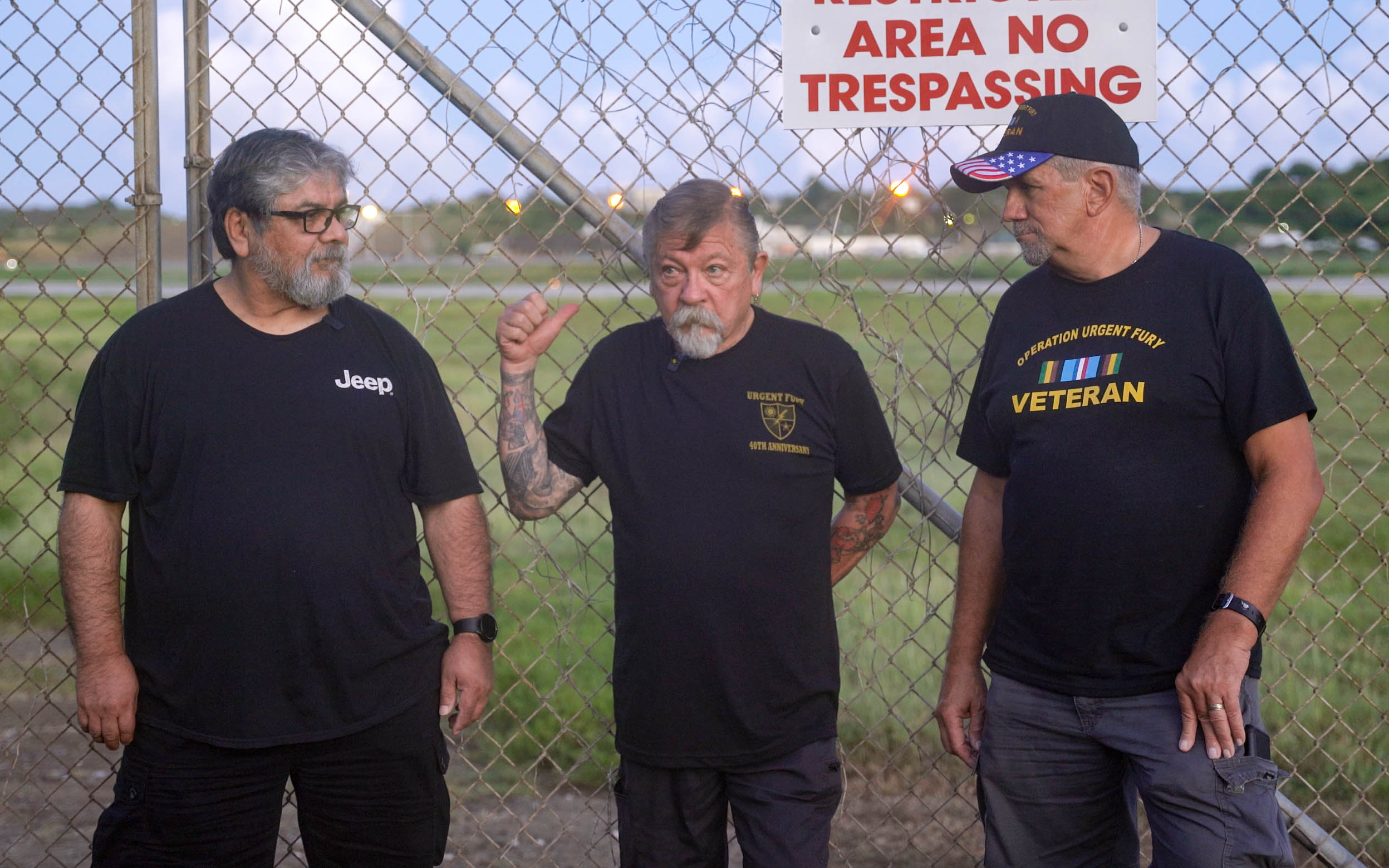

POINT SALINES, Grenada — U.S. Army Rangers returned to Grenada this week, four decades after they liberated the island from the grips of Cuban and Soviet influence during Operation Urgent Fury in 1983.
At 5:36 a.m., H-Hour, 40 years later to the minute, three 2nd Ranger Battalion Operation Urgent Fury veterans drove to the security fence surrounding the Maurice Bishop International Airport to take a look at the same runway they landed on after jumping from C-130s flying at about 500 feet above ground level. They traded memories, each from a different vantage point during the operation.
“I was down closer to the other end of the runway. There was a little building over on that side of the runway and they started shooting out of there,” said Jesse Denman, a Ranger medic who jumped into Grenada. “That’s when some Spanish speaker [Ranger] went over there and said, ‘Here’s what’s gonna happen, you’re gonna come out of there with your hands up, or we’re gonna blow this building up.’ So they all came out and that was the first prisoners that I saw captured.”
Norbert ‘Bert’ Miller and Frank Morales are both Ranger medics who jumped in with Denman that day. Now, the old warriors are still a tight team — like literal brothers — each bridging the gap in the other’s memories.
Subscribe to Task & Purpose Today. Get the latest military news and culture in your inbox daily.
“Every time about this time of year, I think about everybody and what we did, especially Kevin Lannon,” Miller said. “Yeah, I think about Kevin a lot. My job as a medic, I was determined to make sure as many Rangers went home as possible. You know, I will go before them.”
The three chatted for over an hour as the sun rose into the sky. A Ranger’s profession is inherently risky. Modern Rangers have advanced intelligence capabilities whereas the ‘Grenada raiders’ had an outdated tourism map guiding their plans and several surprises that waited for them once they landed.

The three discussed how the Cubans manning the anti-aircraft weapons had effective fire toward their C-130s, but as the pilots dropped to 500 feet, they were less effective. It is believed that the Cubans’ anti-aircraft weapons were too high of an elevation and the minimum pitch of the guns was too high to accurately hit the parachuting Rangers, although one of the C-130s took rounds through the tail but kept flying.
Morales pointed out how they all helped keep each other calm and collected before, during, and after the jump.
“[Denman] was calm, and he calmed me — really helped,” Morales said. “I think all of us did that. You know, we all have buddy Rangers and we were rigging each other up and Denman was my jumpmaster, I was his jumpmaster.”
The three Rangers have spent all week reconnecting with other Urgent Fury veterans in Grenada for the anniversary. For most of them, it’s their first time returning since they liberated the island along with the other units that participated in the operation.
The group of Rangers, approximately 20 in total, have enjoyed their return to the island, welcomed by locals chopping open fresh coconuts for them to drink and eat from. Miller, Denman, and Morales all agreed: it was good to be back and experience what their hard work and sacrifices led to.
Update: The story has been edited to correct the spelling of Kevin Lannon’s name.
The latest on Task & Purpose
- Navy fires captain of guided-missile cruiser USS Lake Erie
- The M10 Booker Combat Vehicle is definitely a tank, says Gen. Abrams
- Why Navy SEALs wear a trident and other facts about life as a frogman
- A-10 Warthogs arrive, more U.S. forces coming amid Israel-Gaza fighting
- Army plans to cut ‘unnecessary maintenance’ on vehicles and weapons